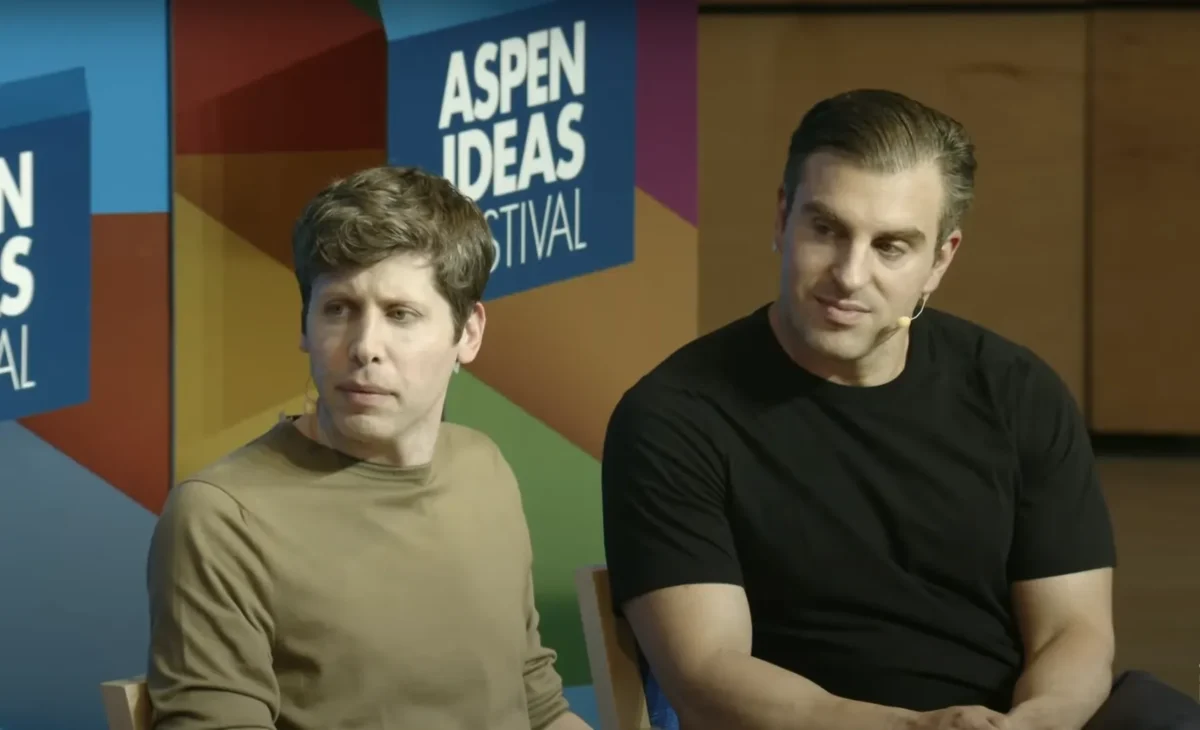Sam Altman says GPT-5 will be a “Significant Leap Forward”
GPT 5 is far better than GPT 4o: here’s how
Key Points:
OpenAI has established itself as a leading giant in AI progress, making ChatGPT more accessible and teaming up with Apple, making it the top choice for everyone.
Now, ChatGPT is the talk of the town, dominating various sectors including healthcare, finance, and the legal profession. AI models of the company are reshaping how we solve problems and enhance efficiency.
While GPT-4 has marked a significant milestone with its Omni model and the continuous add-on of features, the anticipation surrounding GPT-5 is palpable, promising even greater advancements.

Speaking at the Aspen Ideas Festival, Sam Altman hinted at the upcoming ChatGPT-5, suggesting it will mark a “significant leap forward”.
GPT-4 vs GPT-5 by Sam Altman
GPT-4, according to Altman, occasionally struggles with logic and reasoning. Despite its impressive ability to generate coherent and contextually relevant text, GPT-4 sometimes makes errors that even a child wouldn’t make.
These mistakes can range from simple logical fallacies to more complex reasoning failures, highlighting the need for further refinement. Altman has described GPT-4 as “the dumbest model any of you will ever have to use,” not to belittle the technology, but to stress the importance of continuous improvement.
GPT-5, with PhD-level intelligence, aims to bridge these gaps, offering more accurate and reliable performance in tasks that demand higher cognitive functions. This could make a significant difference in fields like law, science, and education, where precise reasoning is crucial.
Altman stresses that despite its promising trajectory, the technology is still in its infancy, grappling with challenges like data limitations and algorithmic complexities. He notes that current models, while impressive, are only a fraction of what they could eventually achieve.
AI Models Comparison to Early iPhone
To put this leap into perspective, he referenced the introduction of the first iPhone. Before its release, mobile phones were functional but limited. The iPhone redefined what a phone could be, integrating features that transformed it into a multi-functional device integral to daily life.
“The first iPhone was still pretty buggy, but it was good enough to be useful for people,” Altman says.
Similarly, GPT-5 is expected to redefine the capabilities of AI, moving beyond the impressive but sometimes flawed performance of its predecessors. This evolution could lead to more effective virtual assistants, better customer service bots, and more intuitive educational tools.
OpenAI’s Approach to Content Licensing
As AI technology advances, the need for content licensing becomes increasingly important. According to Altman, OpenAI emphasizes establishing licensing agreements with preferred publishers.
OpenAI’s licensing agreements involve formal partnerships with selected publishers, allowing the use of their content to train and improve AI models.
OpenAI’s approach to content licensing sets a positive example in the AI industry. However, it is crucial to remain vigilant about the potential risks of becoming a media gatekeeper.
Final Thoughts
The journey of AI development, spearheaded by advancements like GPT-4o and the anticipated GPT-5, underscores a transformative era in technology. However, this rapid innovation comes with significant ethical considerations, particularly in maintaining media diversity and addressing potential biases.
I believe AI will fundamentally transform our interactions with technology and each other. The key to this transformation lies in developing AI models like ChatGPT that are not only powerful but also safe, ethical, and aligned with human values.
Albert Haley
Albert Haley, the enthusiastic author and visionary behind ChatGPT 4 Online, is deeply fueled by his love for everything related to artificial intelligence (AI). Possessing a unique talent for simplifying complex AI concepts, he is devoted to helping readers of varying expertise levels, whether newcomers or seasoned professionals, in navigating the fascinating realm of AI. Albert ensures that readers consistently have access to the latest and most pertinent AI updates, tools, and valuable insights. Author Bio


